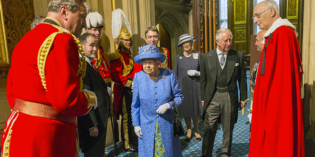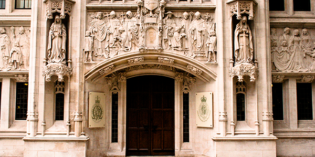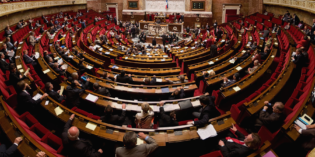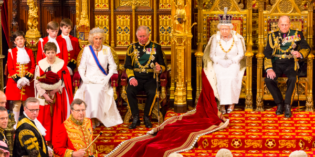Parliament

Are the DUP for turning? When the Union is perceived to be at risk, all options are on the table
The UK government’s latest attempt to push a deal through Parliament failed when the DUP withdrew support. Mary C. Murphy explains the DUP’s thinking and options. She writes that, while they can continue to pursue a strategy which is focused on revising the deal to their satisfaction, it is also possible that they could change tack completely and re-align their position in favour of the UK remaining in the EU.

Whatever happened to the Westminster Model? The ‘Italianisation’ of British politics
The UK was once viewed by political scientists as embodying a distinct majoritarian form of politics – the ‘Westminster Model’ – that stood in contrast to the ‘consensus’ democracies found elsewhere in Europe. Several of the countries in the latter group, such as Italy, were often assumed to be inherently prone to instability in comparison to the UK. Yet as Martin J. Bull explains, politics in Westminster now has some striking similarities with the Italian approach that once invited scorn from British observers.

When select committees speak, do newspapers listen?
It is frequently claimed that the House of Commons’ select committees have grown in prominence since key reforms were implemented in 2010. Brian J. Gaines, Mark Goodwin, Stephen Holden Bates and Gisela Sin test this claim specifically in relation to press coverage. They find a pattern of increased newspaper attention after the reforms, but caution that these results show no consistent sustained increase, and also vary considerably depending on committee.

The rule of law, not the rule of politics
Joelle Grogan comments on the UK Supreme Court’s Cherry/Miller No 2 judgment on the government’s attempt to prorogue Parliament. She argues that criticisms of the court as ‘too political’ are misguided, and its ruling defended the rule of law, and upheld the principle that Parliament is at the core of the British constitution.

The modern monarchy and prorogation: clearer rules are required
The question of the legality of Boris Johnson’s prorogation of Parliament reaches the Supreme Court this week. In this context, Craig Prescott argues that, if politicians can’t exercise restraint, then clearer rules for when one parliamentary session ends and a new one begins are needed to avoid the politicisation of the modern monarchy.

Can politicians act with impunity? The constitutional principles at stake in the prorogation case
In considering whether the recent decision to prorogue Parliament was legal, the English and Scottish courts came to different conclusions because they considered different questions, explains Pippa Catterall, not because Scottish and English public legal approaches differ. She discusses the points of constitutional law that are at stake as the Supreme Court prepares to hear the case.

Brexit shows both the importance of the British Political Tradition and the extent to which it is under threat
Matt Hall and David Marsh discuss what recent developments in British politics, especially since the election of Boris Johnson, tell us about the British Political Tradition – a view of democracy that emphasises a limited liberal conception of representation, which focuses on the importance of free and fair elections, and a conservative conception of responsibility based on the idea that the ‘executive knows best’.

Cutting the size of a parliament: we should consider process and resources not just numbers
When political leaders say we should cut the number of politicians, what are their motives? Alex Marland found that the rationale is largely symbolic, rather than grounded in any considered approach to legislature size, and used as a populist framing for more general cost-cutting. A more coherent approach should include attention to the process of cutting, and to overall resources for backbench politicians.

After the prorogation coup, what’s left of the British constitution?
The contemptuous ease with which the Johnson-Cummings regime has attempted to cripple parliamentary consideration of alternatives to a no-deal Brexit by proroguing parliament raises serious issues about the remaining value of the UK’s ‘unfixed constitution’. This controversy comes after a prolonged period in which the executive under Theresa May used every micro-institutional weapon to blackmail MPs into accepting its deal. Patrick Dunleavy argues that the UK has slipped into having a failed constitution, where core democratic institutions are contaminated by rigged micro-institutions. The control of power has become dominated by a bunch of executive tricks, and an uncodified ‘constitution’ no longer provides any predictable or worthwhile constraints on government action. Yet it may be only a small step from creating a failed constitution to becoming some version of a failed state.

Threat of prorogation: what can the Commons do?
The Prime Minister has requested and received consent for the current parliament to be prorogued, and plans to introduce a new Queen’s Speech before the Brexit deadline of 31 October. David Howarth assesses the options available for those wishing to oppose this and enable the Commons to prevent a no deal Brexit.


 Democratic Audit's core funding is provided by the Joseph Rowntree Charitable Trust. Additional funding is provided by the London School of Economics.
Democratic Audit's core funding is provided by the Joseph Rowntree Charitable Trust. Additional funding is provided by the London School of Economics.